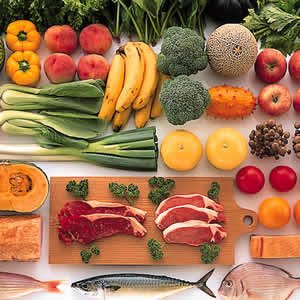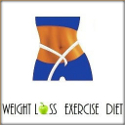-
Health Basics: What is Proper Nutrition?
Wednesday, April 16th, 2025by Paula Campbell, Nutritionist
“Nutrition? What’s that?” There are a lot of people who don’t understand what proper nutrition is, nor the vital role it plays in human health. Simply put, nutrition is the science of how food affects the body’s growth and development.
 Nutritionists focus on the role of essential vitamins, minerals and other basic nutrients on the body. The science of nutrition centers on proper diet, the way the body processes and digests the food it takes in, and how the food we eat affects the body’s metabolism.
Nutritionists focus on the role of essential vitamins, minerals and other basic nutrients on the body. The science of nutrition centers on proper diet, the way the body processes and digests the food it takes in, and how the food we eat affects the body’s metabolism.A lack of proper nourishment can lead to physical illness, disease, and even psychological problems. This is why good nutrition is vital to maintaining a healthy body and avoiding disease.
Eating right can reduce the risks of developing chronic illnesses or premature death. Diseases like cancer, heart disease, hypertension, stroke and diabetes may be avoided by eating a healthy and balanced diet in conjunction with regular exercise.
Basic Nutritional Requirements
There are several factors that make up proper and healthy nourishment, beginning with average nutritional requirements. When making dietary recommendations, nutritionists divide people into groups based on how fast they are growing, how active they are, and their height, weight, sex, and age.
There are many guidelines for deciding what is a healthy diet, and you should therefore take into account all the essential nutrients when menu planning. Ask yourself, “Is there a balance of whole grains, lean protein, fresh fruits and vegetables?”
Furthermore, do the foods you are eating contain the proper balance of phytochemicals, antioxidants, vitamins and minerals, omega three, fat, fiber, salt, sugar, and water? Also, remember to practice portion control in order to avoid overeating.
Essential Nutrients for Health
The body’s energy comes from the food we eat in either solid or liquid form. Food provides energy to our body and helps support proper physical growth reproduction and body maintenance and repair. Healthy food gives the body essential substances for proper mental and physical functioning.
Proper nutrition is categorized into six classes of essential nutrients that the body needs. These are vitamins, minerals, water, micro-nutrients, fats, carbohydrates and protein.
The body’s energy comes from carbohydrates, which are the most important nutrients to consume. A healthy diet consists of sixty percent carbohydrates. Not eating enough carbohydrates can lead to potentially serious health problems like ketosis.
Recommended Dietary Guidelines
Dietary guidelines from the U.S. Departments of Health and Human Services (HHS) and Agriculture (USDA) recommend fewer calories and smarter food choices. Here are some of their key recommendations:
- Follow a balanced diet that is low in saturated and trans fats, cholesterol, added sugars, salt, and alcohol, such as the Dietary Approaches to Stop Hypertension (DASH) Eating Plan.
- Balance your calorie intake with exercise. Slowly decrease the amount of calories you take in while increasing exercise to prevent gradual weight gain over time. Exercise regularly and reduce sedentary activities like watching TV on the couch.
- Eat 2 cups (4 servings) of fruit and 2 1/2 cups of vegetables (5 servings) per day for an average 2,000-calorie per day diet.
- Eat 3 ounces or more of whole-grain products per day.
- Consume 3 cups per day of fat-free or low-fat milk or milk products.
- Get fewer than 7% of daily calories from saturated fatty acids.
- Avoid trans fatty acids, which are unhealthy fats. Trans fats are found in fried foods, commercial baked goods such as doughnuts, cookies, and crackers, in processed foods, and in margarine.
- Limit cholesterol intake to less than 300 milligrams per day.
- Make total fat intake no more than 20% to 35% of calories consumed. Choose “good” fats containing polyunsaturated and monounsaturated fatty acids such as those in fish, nuts, and vegetable oils. Lean or fat-free meats, poultry, dry beans, and milk or milk products are best. Total fat intake can be up to 35% of total calories if most of the fats are “good” fats.
- Avoid whenever possible added sugars.
- Consume fewer than 2,300 milligrams (+/- one teaspoon of salt) of sodium daily, and limit added salt when preparing food.
- Do not consume more than 1 alcoholic drink per day for females, 2 per day for males. Certain individuals should not drink any alcohol at all.
- When shopping, take time to read the nutrition labels on foods before you buy them. This will help you to understand the type and quantity of fats each food contains.
Eat a Balanced Diet of Nutrient-Dense Foods
Many of us suffer from diseases and illnesses due to a poor diet and unhealthy lifestyle. Doctors, dietitians, and other health experts encourage us to eat plenty of fruits, vegetables, legumes, vegetables, whole grains, fish, meat, milk and cheese.
A balanced diet should match the proper calorie level for your body type, and portion control is also important. By choosing food with a high-nutrient density, you will be able to get more out of each calorie you consume.
Nutrient-dense foods contain more vitamins and minerals and relatively fewer calories. Good examples are fresh fruits and vegetables, whole grains and beans, and lean meats and fish.
Do your best to avoid low-nutrient density foods with poor vitamin content but lots of calories. Examples include candy bars, sodas, doughnuts, french fries and onion rings.
It’s also vital to drink lots of water, get proper sleep and engage in regular exercise. The combination of a balanced diet and a commitment to fitness can extend a person’s lifespan. Anti-aging nutrition is thus a natural way to maximize one’s longevity.
Living an unhealthy lifestyle based on poor nutrition will most likely result in future health problems. That’s why it’s important to understand what is proper nutrition and how to choose the right foods for good health and longer life.
(published July 13, 2011)


